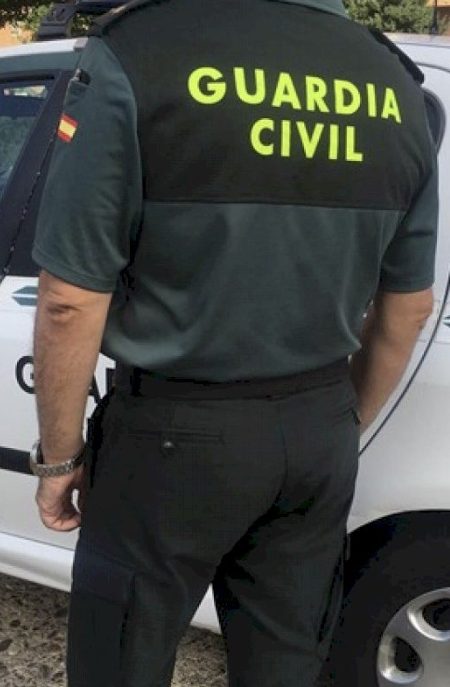An Iranian national who had sought refuge in Elche since February, when Interpol first identified him as a wanted man, has been arrested and ordered to be extradited to the United Kingdom, which he had refused, for his alleged involvement in an international tobacco smuggling ring that defrauded more than £69 million in taxes and for which he is named as the ringleader. The National Court approved his extradition with one condition: if he is condemned to life in prison, it must be changed after 20 years. In February, the ringleader of another worldwide organised crime organisation, Los Alfiles, which is accused of at least a dozen violent crimes, was apprehended at Interpol’s request in Elche. In the same month, an airport apprehended another Iranian wanted for a variety of crimes, including fraud and bribery.
A covert operation in Elche, specifically in a residential neighbourhood in the city’s north, apprehended the alleged smuggler. Following an urgent report from Interpol, agents specialising in international cooperation discovered a foreigner hiding in a leased property under a fictitious identity. According to individuals familiar with the inquiry, the defendant had been hiding for several days after escaping the United Kingdom, where he was scheduled to appear in court. The National Court’s Central Investigative Court No. 3 organised the operation, which went smoothly. Once identified, they transported him to Madrid for a court trial. He has since remained in pre-trial detention. Investigators identified the wanted individual as a significant member of an international criminal organisation operating between 2013 and 2018. The network smuggled significant quantities of tobacco and cigarettes into the United Kingdom from Eastern Europe, mainly Russia, while avoiding tax and customs checks. To accomplish this, they utilised a sophisticated network of front companies and legitimate carriers. They disguised the cigarette cartons in shipments that appeared to be other products, such as windows, barbecues, or wooden planks, to deceive inspectors.

Intermediary
This individual handled logistical and coordination tasks. He served as a liaison between those who imported tobacco into the nation and those who kept and delivered it to retailers, many of whom were directly related to his entourage. He is also known by the nicknames “Capazorras,” “Bola,” and “Millonario,” under which he was named in the confiscated documents.
During the search, nine distribution books with his fingerprints were discovered. These included names, addresses, and amounts for an illegal tobacco distribution scheme worth more than £61 million in tax avoidance.
Two incidents were particularly revealing: in April 2018, British officials confiscated more than £120,000 in cash in Birmingham, which was in a bag containing the suspect’s fingerprints. A few days later, he was seen carrying suspicious items in Bolton; after his departure, investigators seized an additional £144,000 and more than 39,000 cigarettes. In both instances, his fingerprints were immediately connected to the seized objects.
Arguments denied by the court
During a hearing in Madrid a few days ago, the detainee contested his extradition. His defence maintained that because part of the transfer occurred on European territory and during the United Kingdom’s membership in the European Union, the crime could not be attributed only to the requesting country. They also claimed that the United Kingdom has a new, more restrictive criminal regime, and that the principles that apply are based on common law rather than statutory law.
The National Court dismissed every argument. It considered that the majority of the transactions took place on British soil and that the country’s current statute provides for obvious and well-known sanctions for such acts. Furthermore, it emphasised that tobacco is a state monopoly commodity that does not benefit from free circulation, making undeclared importation a serious tax offence. It also denied any claim that rights were infringed.
The only limitation set by the National Court is that if the detainee is condemned to life in prison, the sentence must be reconsidered after twenty years to ensure the possibility of clemency or reduction. The United Kingdom now has ten days to formalise the promise. In the event of a conviction, the foreigner’s whole stay in pretrial custody in Spain will be discounted. This case demonstrates the efficacy of post-Brexit international collaboration in criminal justice issues. Despite no longer being a member of the European Union, the United Kingdom maintains bilateral agreements that allow extraditions to be processed in accordance with basic rights.









No Comment! Be the first one.